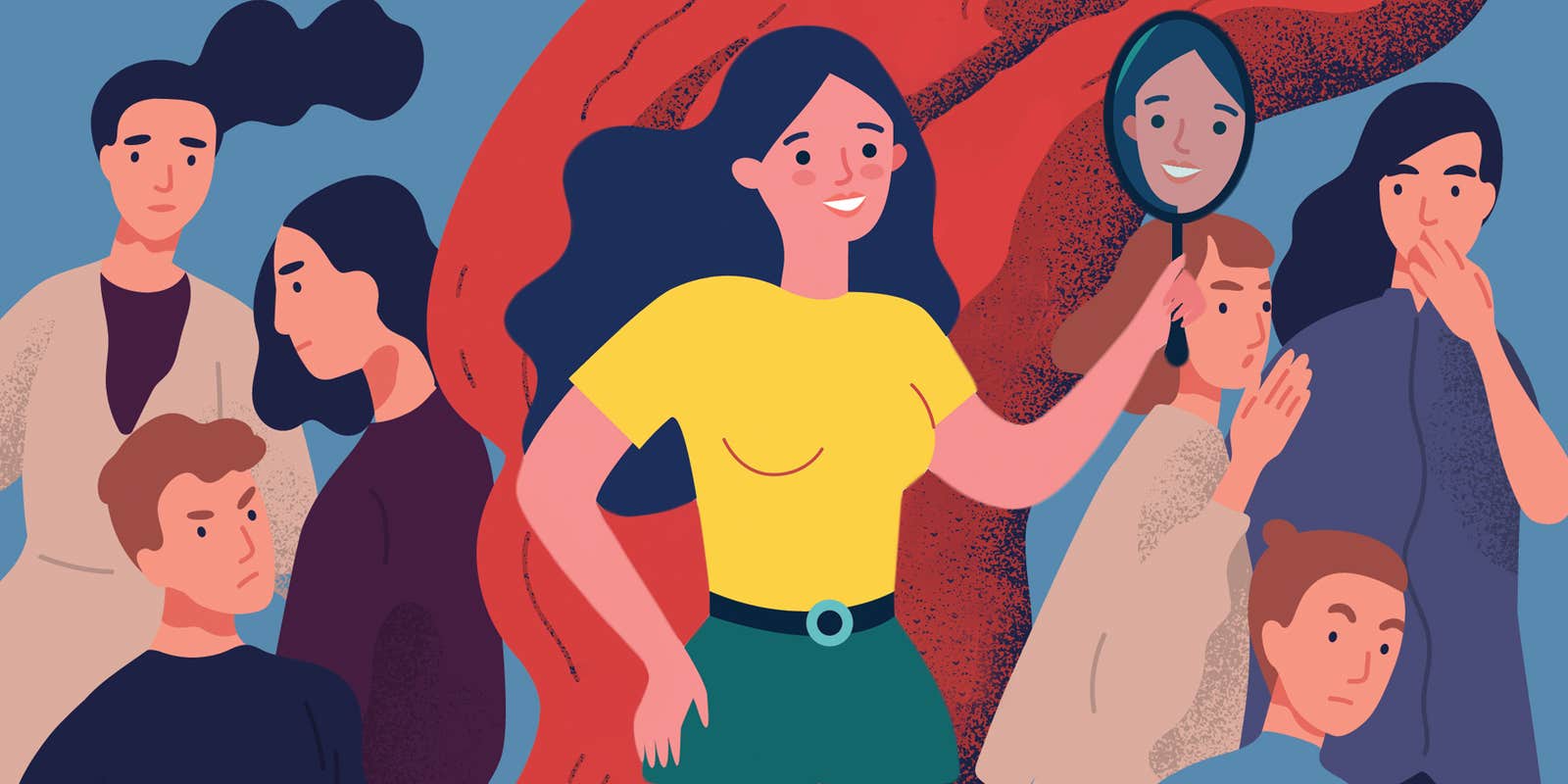“Main Character Syndrome” is a well-known term on social media that describes a confident, self-important person. But experts are worried that this behavior may be unhealthy and even teetering toward narcissism.
Read on for the definition and examples of Main Character Syndrome—and learn how to avoid its self-absorbed clutches.
Where did ‘Main Character Syndrome’ originate?
The term “Main Character Syndrome” first gained traction in May 2020 after TikTok user @lexaprolesbian (deactivated) posted a since-deleted satirical video about wanting to be seen as the neighborhood’s main character.
The video premise has been copied countless times, spawning its own sound specific to the trend. It quickly became a way to describe workplace behavior, relationships, and influencers.
Soon, main characters everywhere came under fire for their self-centered, often performative, behavior.
Urban Dictionary defines Main Character Syndrome as: “When someone thinks they are the main character of their life. Usually comes with a side of individuality complex, quirky style and a self-centered point of view.” It’s hardly complimentary, painting the individual as arrogant and narcissistic.
What are examples of ‘Main Character Syndrome’?
Certain images spring to mind with “Main Character Syndrome,” offering examples that include people dancing in the street during a downpour, the Mamma Mia trend, reading classic literature in a coffee shop, and Carrie Bradshaw.
It’s a trend muddied by its endless comic relief as viewers wade through people “romanticizing their life” and those satirizing the content.
Influencers like Tube Girl have mastered the concept of romanticizing the little things: a philosophy integral to being a main character. She films short videos on her daily commute, which gained enough traction to secure a collaboration with Mac Cosmetics.
Is ‘Main Character Syndrome’ real?
Despite seeming harmless, Phil Reed, professor of psychology at Swansea University, expressed concern for the trend in an article for Psychology Today.
Reed warns that as individuals become more disconnected from the people around them, they risk exhibiting behavior associated with narcissism.
This is aided by the internet, which gives users complete control over their online identity.
Some of the traits identified by therapist Kate Rosenblatt for Insider (framing their life as perfect, self-centered attitudes, an inability to take criticism) share an alignment with clinically recognized narcissism.
In an email interview with Daily Dot, University of Georgia professor and author of The New Science of Narcissism, W. Keith Campbell said that narcissists have inflated self-opinion, low empathy, and a need for admiration, status, or attention.
The name narcissism comes from the Greek myth of Narcissus, a man so obsessed with his own reflection in a pool of water that it led him to take his own life.
However, narcissistic personality disorder isn’t all that common, affecting just 1-2% of the population, according to Campbell. He added, “Social media seems to attract and benefit narcissists; it doesn’t seem to create them readily.”
Is main character syndrome the same as narcissism?
While main character content might not be creating narcissists, it could be attracting individuals who exhibit similar behavior.
In an email correspondence with the Daily Dot, mental health counselor Georgina Sturmer said, “In some ways, social media is designed to bring out the narcissist in all of us.
It encourages us to share, to compare, to add filters, to shout about our achievements,” Sturmer continued. “So it offers narcissists a public platform for their attention-seeking behavior, with an instant feedback loop that inflates their sense of self-importance.”
More importantly, though, Sturmer worries about the impact Main Character Syndrome might have on viewers. Constant perfection leaves users feeling insecure and anxious, ultimately insignificant in the presence of these social media giants who seem to ooze confidence.
Campbell added, “I think constantly being online can benefit people who are already narcissistic but it makes everybody self-conscious which isn’t quite the same as narcissistic. People know that anything they do can be recorded or filmed and so they always need to be on guard that they don’t do something embarrassing or shameful.”
“Main Characters” seem to have transcended this embarrassment, unconcerned with how others might perceive them as they fearlessly create content in public. It’s something for which these creators are often mocked on accounts like Influencers in the Wild.
Once viewers catch a glimpse behind the scenes, this behavior quickly shifts from seeming cool to cringe.
How to avoid it
When users are faced with a feedback loop of perfection, it becomes more important than ever to take a step back and reflect.
Regularly engaging with this type of over-confident content can increase anxiety about being nothing but a side character or “non-player character.”
Someone like Tube Girl might seem like the perfect embodiment of the London “It Girl,” but she becomes much less enviable once you imagine shutting off the camera, closing TikTok, and returning to your seat on a train full of commuters who just want to get home.
As long as there are influencers, Main Character Syndrome seems like it will have a place in the internet’s vocabulary. Wanting to be the “main character” isn’t inherently a bad thing, as it can motivate people out of their comfort zone to try new things.
Many agree that this behavior only becomes concerning once it impacts others, driven more by online content than the desire to engage in the real world.



